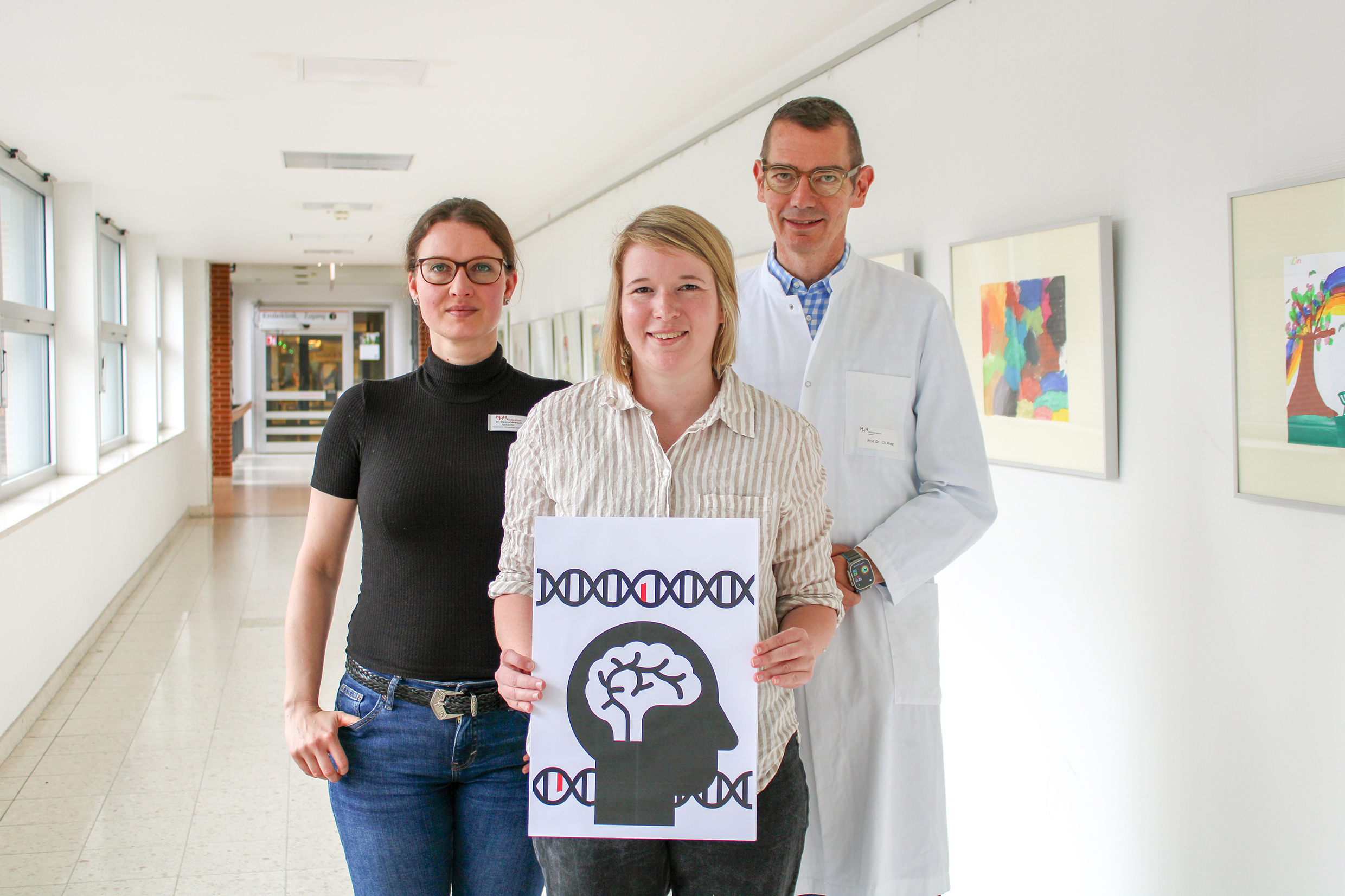Result of an international cohort study by MHH researchers

The research team at the MHH Children's Clinic (from left): Dr. Marena Rebekka Niewisch, Svenja Kastellan and Professor Dr. Christian Kratz. Copyright: Maike Isfort/ MHH.
Fanconi anemia (FA) is a rare hereditary cancer predisposition disease characterized by bone marrow failure as well as endocrine and physical abnormalities. A key clinical feature in those affected is a high risk of cancer. The reason for this is that certain genes involved in the repair of DNA damage do not function properly in the disease. This includes the BRCA2 gene. The greatest risk of cancer is observed in affected patients when there are harmful changes in both copies of the BRCA2 gene. "There is no higher risk of cancer than with such biallelic pathogenic variants. Those affected develop a number of embryonic tumors and leukemias in the first decade of life," says Professor Dr. Christian Kratz, Director of the Department of Pediatric Hematology and Oncology at the Hannover Medical School (MHH).
Affected people from all over the world
Little is known about specific clinical, genetic, pathological and treatment characteristics. Professor Kratz and his team have therefore examined the course of the disease for the first time in an international cohort of eight patients with medulloblastoma - an embryonic tumor of the cerebellum. Cases from all over the world were collected for the study. "The prognosis of the patients was very poor. All of them died shortly after being diagnosed with medulloblastoma from the tumor or other neoplasms," says Svenja Kastellan, lead author and medical student who is doing her doctorate under Professor Kratz at the MHH. Those affected were between 7 and 58 months old. Six of the patients received chemotherapy and one patient also received proton radiation. No life-threatening toxicities could be identified.
Experimental treatments necessary
"Medulloblastoma in patients with biallelic BRCA2 pathogenic variants is a fatal disease," says Kastellan. This became clear in the study. "Experimental treatments are urgently needed to help these patients," adds co-project supervisor Dr. Marena Rebekka Niewisch, scientist and specialist in the Department of Pediatric Hematology and Oncology. The results were published in the Journal of Hematology & Oncology.
To research cancer, its causes and, above all, new treatment approaches, renowned scientists work hand in hand at the MHH's Comprehensive Cancer Center (CCC). The CCC can look back on many years of international expertise in the field of basic research and translational research, which enables findings from basic research to be transferred to clinical application.
You can find the original article here.
Text: Maike Isfort